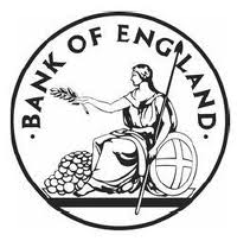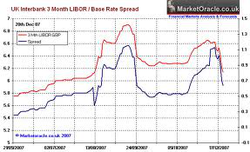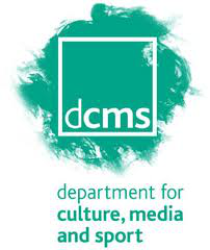Updated: Sept. 17, 2012 (Initial publication: Sept. 13, 2012)
Breaking news

Updated: Sept. 14, 2012 (Initial publication: Sept. 15, 2012)
Breaking news

Updated: Aug. 1, 2012 (Initial publication: July 7, 2012)
Breaking news

Updated: July 17, 2012 (Initial publication: July 10, 2012)
Breaking news

Updated: June 8, 2012 (Initial publication: June 3, 2012)
Breaking news

Updated: Jan. 16, 2012 (Initial publication: Oct. 10, 2011)
Translated Summaries

Updated: Jan. 16, 2012 (Initial publication: Oct. 12, 2011)
Translated Summaries

Updated: Dec. 15, 2011 (Initial publication: Dec. 12, 2011)
Thesaurus : Doctrine
Updated: Dec. 13, 2011 (Initial publication: Oct. 18, 2011)
Contributions

Updated: Dec. 12, 2011 (Initial publication: Dec. 12, 2011)
Thesaurus : Doctrine
Updated: Dec. 9, 2011 (Initial publication: Oct. 10, 2011)
Contributions

Updated: Dec. 6, 2011 (Initial publication: Oct. 10, 2011)
Sectorial Analysis

Translated Summaries
In The Journal of Regulation the summaries’ translation are done by the Editors and not by the authors
ENGLISH
Thematic Report (Gambling): The European Commission, despite specific taxation measures, has approves the Danish law of liberalisation of online gambling.
On September 20th 2011, the European Commission declared the new law liberalising gambling in Denmark in line with EU rules. This law creates lower taxes for online casinos than for land-based one, and the Commission declared it compatible with European state aid rules, since the positive effects of the liberalisation of the sector outweigh potential distortions of competition.
ITALIAN
Relazione tematica (Scommesse): La Commissione europea, nonostante i provvedimenti di imposizione specifici, ha approvato la legge danese di liberalizzazione di scommesse online.
Il 20 settembre 2011, la Commissione europea ha dichiarato che la nuova legge che prevede la liberalizzazione delle scommesse in Danimarca è conforme alla legislazione europea. Questa legge crea delle tasse meno importanti per i casino online rispetto a quelle che colpiscono i casino fisicamente esistenti. La Commissione ha dichiarato che tale legislazione è conforme alla legislazione europea in materia di aiuti di stato, in quanto gli effetti positivi della liberalizzazione di questo settore hanno un’importanza maggiore delle potenziali distorsioni della concorrenza.
.....................
Other translations forthcoming.
Updated: Dec. 6, 2011 (Initial publication: Oct. 12, 2011)
Bibliographic Reports : Books

Translated Summaries
In The Journal of Regulation the summaries’ translation are done by the Editors and not by the authors
ENGLISH
Bibliographic Report (Book): The regulation of industrial networks, what evolutions and perspectives in France and in Europe? by Fondation Nationale Entreprise et Performance
Full citation: Fondation nationale Entreprise et Performance, La régulation des réseaux industriels. Quelles évolutions et perspectives en France et en Europe?, Preface Hagelsteen, Marie-Dominique, 105 p., La documentation Française, 2011.
Report by Marie-Anne Frison-RocheManaging Editor and Director
This report ambits to improve the regulation of industrial networks in France and in Europe. Therefore, the Fondation nationale Entreprise et Performance (FNEP) concentrates its study on industrial networks, a category in which it includes telecommunications, energy, rail transportation, and postal services, in France and in Europe. The report proposes new rules or adaptations to old ones in order to increase regulators’ independence, efficacy, and oversight. It then suggests rules be modified to allow for the implementation of regulation at the European level, whenever the relevant market is European in scale.
FRENCH
Compte-rendu bibliographique (Livre): La régulation des réseaux industriels. Quelles évolutions et perspectives en France et en Europe ? par Fondation Nationale Entreprise et Performance.
Compte-rendu faite par Marie-Anne Frison-Roche
Ce rapport ambitieux vise à améliorer la régulation des réseaux industriels en France et en Europe. Par conséquent, la Fondation nationale Entreprise et Performance (FNEP) concentre son étude sur les réseaux industriels, une catégorie dans laquelle le rapport inclut les télécommunications, l’énergie, le transport ferroviaire, et les services postaux, en France et en Europe. Le rapport propose de nouvelles règles ou des adaptations de précédentes, afin d’accroître l’indépendance des régulateurs , d’augmenter l’efficacité et la surveillance. Il propose ensuite que des règles soient modifiées pour permettre la mise en œuvre de la régulation au niveau européen, chaque fois que le marché pertinent est de dimension européenne.
ITALIAN
Relazione bibliografica (Libri): III-1.9: La regolazione delle reti industriali. Quali sono le evoluzioni e le prospettive in Francia e in Europa? A cura della Fondation Nationale Entreprise et Performance
Questa relazione punta a migliorare la regolazione delle reti industriali in Francia e in Europa. Tuttavia la “Fondation Nationale Entreprise et Performance” (FNEP) focalizza la sua attenzione sulle reti industriali, una categoria che include le telecomunicazioni, l’energia, il trasporto ferroviario ed i servizi postali, in Francia ed in Europa. La relazione propone delle nuove regole o una modifica delle regole esistenti per aumentare l’indipendenza, l’efficacia e la vigilanza delle autorità di regolazione. Inoltre, propone di modificare alcune norme per permettere l’applicazione della regolazione al livello europeo, ogni volta che il mercato rilevante è quello europeo.
.....................
Other translations forthcoming.
Updated: Sept. 26, 2011 (Initial publication: June 7, 2011)
Releases : I. Isolated Articles

Translated Summaries
ENGLISH :
This article provides an economic perspective on the role played by
competition policy in the development of competition in various
transport sectors. After a brief reminder of some economic features that
are shared by different transport modes, it mainly examines the
principles and practical underpinnings of merger control as it is
implemented in the present context of rapid consolidation in some
transport sectors. Thereby, it stresses some potential shortcomings of
the traditional merger regula tion approach in the particular context of
transportation services, pointing to an excessive attention paid to
potential competition issues on overly narrow relevant markets while
largely ignoring global efficiency-enhancing effects of mergers and
alliances.
ITALIAN
Articolo: Trasporti, concorrenza e politica in material di concorrenza.
Questo articolo delinea una prospettiva economica del ruolo della politica in materia di concorrenza nello sviluppo della libera concorrenza in vari settori dei trasporti. Dopo un breve richiamo ad alcuni aspetti economici, comuni a diversi tipi di trasporto, l’articolo passa in esame i principi e le pratiche fondamentali del controllo delle concentrazione cosi come applicato nell’attuale contesto di consolidamento di alcuni settori dell’industria dei trasporti. Tuttavia, l’articolo mette in rilievo ugualmente alcune carenze potenziali di un approccio classico della regolazione delle concentrazioni nello specifico settore dei trasporti, tra cui l’eccessiva attenzione data alle questioni di concorrenza potenziale su mercati di dimensioni ridotte e la noncuranza generalizzata degli effetti di alleanze e fusioni in materia di efficacia e di progresso.
SPANISH
Artículo: Transporte, competencia y política competitiva
Este artículo da una perspectiva económica sobre el rol jugador por la política de la competencia y el desarrollo de la competencia en varios sectores de transporte. Después de un breve recordatorio sobre las características económicas compartidas por diferentes modales de transporte, examina principalmente los principios y detalles prácticos de la implementación de control de uniones en el contexto presente de consolidación rápida en algunos sectores de transporte. El artículo pone énfasis algunos de los defectos potenciales del la regulación tradicional de uniones, particularmente en el contexto de los servicios de transporte, indicando un enfoque excesivo a cuestiones de competencia potencial en mercados demasiado estrechos y a la vez ignorando los efectos del mejoramiento de eficacia global de las uniones y las alianzas.
PORTUGUESE
Artigo: Transporte, concorrência e política concorrencial
Este artigo fornece uma perspectiva econômica sobre o papel exercido pela política concorrencial no desenvolvimento da concorrência em diversos setores de transporte. Após uma breve retomada de conceitos econômicos compartilhados por modos de transporte diferentes, ele examina principalmente os princípios e os problemas práticos do controle como implementado no contexto presente de rápida consolidação em alguns setores de transporte. Assim, ele sublinha alguns potenciais conflitos no enfoque da regulação tradicional no contexto particular de serviços de transporte, apontando para uma atenção excessiva concedida para problemas de concorrência potencial em muito relevantes mercados enquanto são amplamente ignorados os efeitos na eficiência global.
Transporte aéreo – Avião – Aeroporto – Aliança – Comportamento anti-concorrencial – Falência – Concorrência – Autoridade de concorrência – Política de concorrência – Concentração – Contrato – Subsídios cruzados – Economia de escala – Eficiência – Ganho de eficiência – Barreiras de entrada – Equilíbrio – Comissão Europeia – Custo fixo – França – Londres – Incentivo – Operador incumbente – Infraestrutura – Interconexão – Investimento – Monopólio legal – Liberalização – Rede de longa distância – Estrutura de mercado – Controle – Firma de multiprodução – Rede – Mercado oligopolístico – Concorrência potencial – Preço – Elasticidade de preço – Trilho – Transporte por trilhos – Mercado relevante – Transporte rodoviário – Segmento – Serviço – Tempo – Transporte – Reino Unido – Comunidade urbana – Veículo.*
* Em The Journal of Regulation, estas palavras-chave são fornecidas pelo Editor e não pelo Autor.
.....................
Other translations forthcoming.
Updated: Sept. 26, 2011 (Initial publication: July 4, 2011)
Bibliographic Reports : Symposiums

ENGLISH
On May 20, 2011, a colloquium was held in Paris on the question of How should the Audit be regulated?, organized by The Journal of Regulation, l’Ecole de droit de la Sorbonne, and KPMG France, one of the Journal’s privileged partners. The participants were Jean-Luc Decornoy, Nathalie de Basaldua, Alain Couret, Marie-Anne Frison-Roche, Christine Thin, Stephen Haddrill, Claude Cazes, Etienne Wasmer, and Mara Cameran. The reflections and discussions bore upon the European Commission’s Green Paper on Audit Policy. The colloquium’s ambition was to discuss the methodological links that must guide the future of the Audit, both in relation to financial regulation and competition, and also to analyze what the inspirations for audit reform should be, especially by using the available economic studies. Each participant agreed that the most important goal was to ensure that the audit is of very high quality, and everything ought to converge towards this goal.
ITALIAN
Relazione bibliografica (Convegno): Vers quelle régulation de l’audit faut-il aller? (Come dovrebbe essere regolato l’audit ?)
Il 20 maggio 2011, si è tenuto a Parigi un convegno sulla questione di come dovrebbe essere regolato l’audit, organizzato da The Journal of Regulation, da l’Ecole de droit de la Sorbonne e KPMG France, partner privilegiato della rivista. I partecipanti erano Jean-Luc Decornoy, Nathalie de Basaldua, Alain Couret, Marie-Anne Frison-Roche, Christine Thin, Stephen Haddrill, Claude Cazes, Etienne Wasmer e Mara Cameran. Le riflessioni e le discussioni si sono concentrate sul Libro Verde della Commissione europea sulla politica in materia di audit. L’ambizione del convegno era di studiare i nessi metodologici che devono costituire le linee guida dell’audit, tenendo conto della regolazione finanziare e della libera concorrenza. Il convegno mirava inoltre ad analizzare le possibili piste di una riforma dell’audit, sulla base anche di studi di tipo economico. Ogni partecipante ha sottolineato che lo scopo più importante era quello di assicurare un’attività di audit di grande qualità, e che tutti gli sforzi dovrebbero convergere verso tale scopo.
SPANISH
Informe bibliográfico (Simposio): ¿En qué dirección debe dirigirse la regulación?
El 20 de mayo del 2011 se llevó a cabo un coloquio en París sobre la cuestión de “Cómo debe regularse la auditoría?” organizado por The Journal of Regulation, l’école de droit de la Sorbonne y el KPMG France, uno de los asociados principales de esta publicación. Los participantes incluyen Jean-Luc Decornoy, Nathalie de Basaldua, Alain Couret, Marie-Anne Frison-Roche, Christine Thin, Stephen Haddrill, Claude Cazes, Etienne Wasmer, and Mara Cameran. Las reflecciones y discusiones se centraron sobre el Papel Verde de la Comisión Europea sobre la política auditiva. La ambición de este coloquio era de discutir las conexiones metodológicas que deben guiar el futuro de la Auditoría, tanto en relación con la regulación de finanzas y la competencia, y también de analizar cuáles deben de ser las inspiraciones para la reforma de la auditoría, especialmente al usar los estudios económicos disponibles. Cada participante concertó que el objetivo más importante era de asegurar que la auditoría sea de alta calidad, y que todo ha de converger hacia este objetivo.
PORTUGUESE
Informe bibliográfico (Symposium): vers quelle régulation de l’audit faut-il aller ? Como deveria a auditoria ser regulada?
Em 20 de maio de 2011, um colóquio foi realizado em Paris sobre a questão Como deveria a auditoria ser regulada?, organizado por The Journal of Regulation, l’Ecole de droit de la Sorbonne, e KPMG France, um dos principais parceiros deste periódico. Os participantes foram Jean-Luc Decornoy, Nathalie de Basaldua, Alain Couret, Marie-Anne Frison-Roche, Christine Thin, Stephen Haddrill, Claude Cazes, Etienne Wasmer, e Mara Cameran. As reflexões e discussões surgiram a partir do Informe Verde sobre Política de Auditoria da Comissão Europeia. O propósito do colóquio foi discutir as ligações metodológicas que devem guiar o futuro da auditoria, ambos em relação com regulação financeira e concorrência, e também analizar quais deveriam ser as inspirações para a reforma da auditoria, especialmente usando os estudos econômicos disponíveis. Todos os participantes concordaram que o objetivo mais importante seria assegurar que a auditoria é de alta qualidade, e que tudo deve convergir para este objetivo.
Padrão contábil – Alternativa financeira – Auditoria – Mercado de auditoria – Falência – Big Four – Certificação – Colóquio – Concentração – Confiança – Conflito de interesses – Cooperação – Custo – Agência de notação – Operador crucial – Definição – Deontologia – Mercado desregulado – Eficiência – Europa – Mercado europeu de auditoria – Comissão Europeia – Especulação – Crise financeira – Mercado financeiro – Futuro – Mercado global – Objetivo – Informe Verde sobre auditoria – Incentivo – Independência – Informação – Informação assimétrica – Fórum de auditoria internacional – Itália – Auditoria conjunta – Responsabilidade – Gerente – Votação obrigatória – Mercado – Expectativas de mercado – Micro economia – Acaso moral – Opacidade – Opinião – Perímetro – Preço – Lucro – Bem público – Interesse público – Serviço público – Qualidade – Economia real – Informação do risco – Ceticismo – Responsabilidade social – Risco sistêmico – Raciocínio teleológico – Trust – Reino Unido – Estados Unidos da América.*
* Em The Journal of Regulation, estas palavras-chave são fornecidas pelo Editor e não pelo Autor.
Other translations forthcoming.
Updated: Sept. 1, 2011 (Initial publication: June 24, 2011)
Contributions

Updated: Aug. 31, 2011 (Initial publication: July 6, 2011)
Contributions

Updated: Aug. 31, 2011 (Initial publication: July 8, 2011)
Contributions

Updated: June 24, 2011 (Initial publication: June 24, 2011)
Releases : I. Isolated Articles

ENGLISH
The Financial Reporting Council is the UK’s independent regulator responsible for promoting high quality corporate governance and reporting to foster investment. We set audit standards, conduct audit inspections and run the disciplinary scheme for misconduct. We are responsible for the UK Corporate Governance and Stewardship Codes.
ITALIAN
Articolo: La prospettiva dei regolatori sulle politiche di regolazione dell’audit
Il Financial Reporting Council è l’autorità di regolazione indipendente responsabile della promozione di un corretto governo d’impresa e dell’incoraggiamento degli investimenti nel Regno Unito. Stabiliamo gli standard dell’audit, svolgiamo tutte le operazioni di audit e applichiamo la procedura disciplinare in caso di infrazione. Siamo responsabili del governo d’impresa e dei codici di condotta.
SPANISH
Artículo: La perspectiva de reguladores en la política de auditas regulatorias.
El “Financial Reporting Council” (FRC - Consejo de Reportaje Financiero) es el regulador independiente británico responsable por asegurar una alta calidad de gobernanza y reportaje corporativo para promover la inversión. Promovemos estándares de auditoría, conducimos inspecciones de auditoría y manejamos el esquema disciplinario para la mala conducta. Somos los responsables para el UK Corporate Governance and Setwardship Codes (la gerencia corporativa británica y los códigos administrativos).
Other translations fortcoming.
